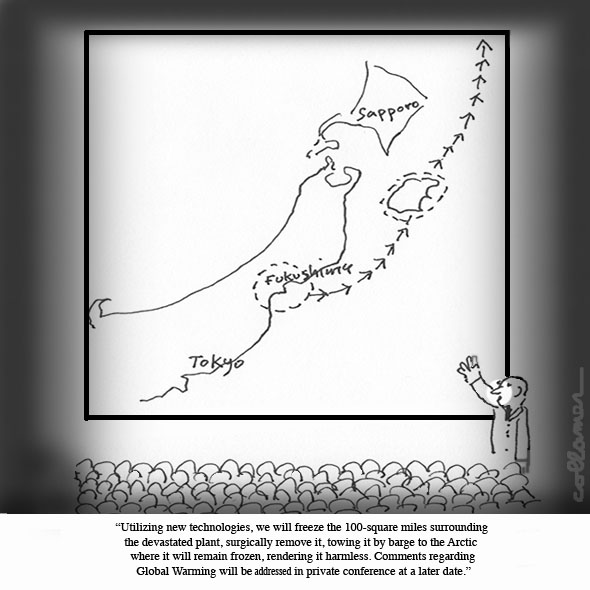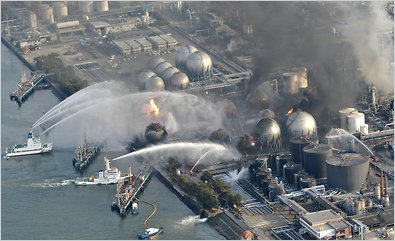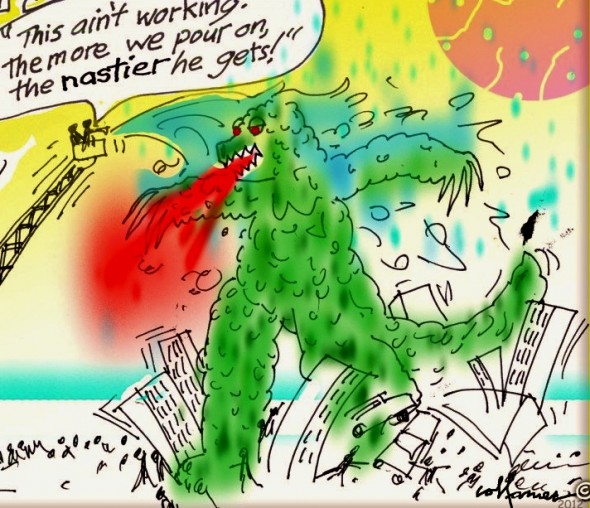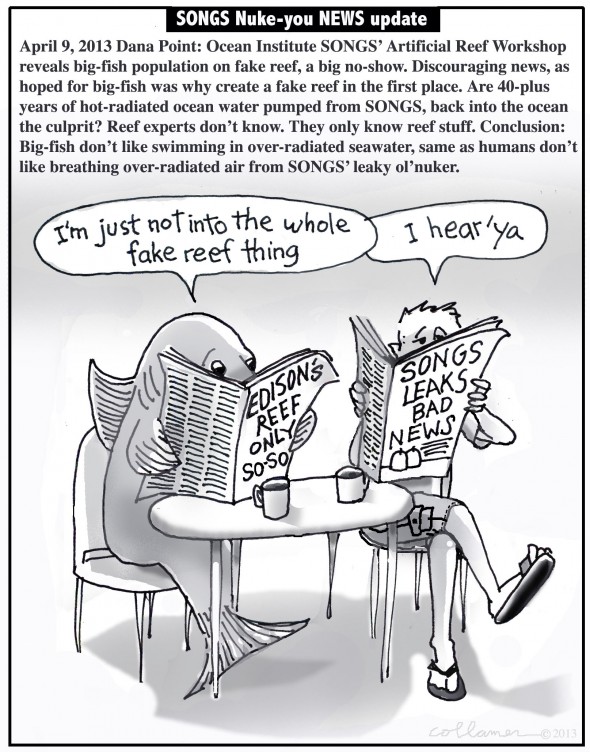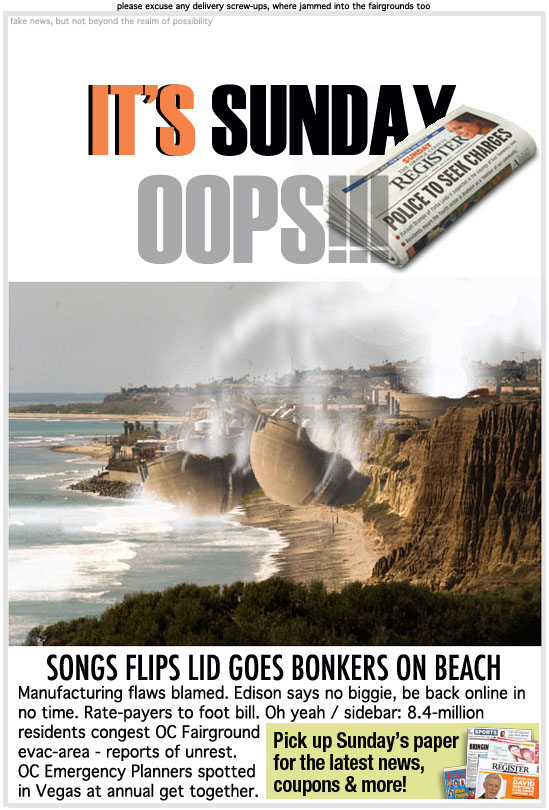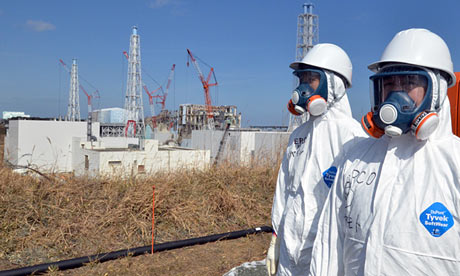“Utilizing new technologies, we will freeze the 100-square miles surrounding the devastated plant, surgically remove it, towing it by barge to the Arctic where it will remain frozen, rendering it harmless. Comments regarding global warming will be addressed in a private conference at a later date.”
Tag: Fukushima
Nuclear: Vermont Yankee to Close, 22 Fukushimas Still Threaten US
The Vermont Yankee nuclear reactor, one of the oldest nuclear plants in the country and the subject of heated battles over the decades, will close late next year. This would leave the US with 99 operating reactors. Four reactors in Georgia and South Carolina are under construction, and the Tennessee Valley Authority is finishing a fifth in Tennessee. But the industry is in a period of rapid decline.
Japan: “Office Farming” Greens Tokyo’s Urban Jungle
Sophie Feng writes on one answer to disaster-prone Tokyo’s interest in food health and security. Corporate Ecology is mixed with the move toward Agricultural Urbanism, greening the sterile downtown office world for workers and visitors.
Fukushima Meltdown: Flush the Radiated Mess into the Pacific
Almost two and a half years after the nuclear meltdowns at Fukushima, the head of Japan’s Nuclear Regulatory Authority (NRA) raised concern on August 5 about the continued flow of radioactive water from the plant going into the Pacific Ocean, telling Reuters, “Right now we have a state of emergency.” Hmm, yes, sounds about right.
Edison’s Reef: A Not So Glowing Report — By Jerry Collamer
While large fish fail to thrive at Southern California Edison’s artificial reef off the coast of San Clemente, California, mitigation mandated by the California Coastal Commission to repair destroyed kelp beds at their San Onofre Nuclear Plant (called SONGS), a wider marine mammal crisis is ongoing. Could radiation released from SONGS be the culprit in both cases?
Nuclear Fission: In the Beginning, It All Looked So Simple
Nuclear Regulatory Commission & Edison host a town hall to discuss San Onofre Nuclear Power Generating Station’s (SONGS’s) status in its current Shut Down mode, due to systemic tube leaks in its new reactors. The experts scratch their heads as to why.
Fukushima Radiation Hitting the Streets of LA and Beyond – Dr. Mark Sircus
Right after Chernobyl blew its top, Edward Teller said on the ABC Evening News in late April 1986, “The chances of a real calamity at a nuclear power station are infinitesimally small. But should it happen, the consequences are impossible to imagine.” Now after Japan’s Fukushima disaster, radiation continues to spread across the Pacific to North America with unimaginable consequences.

